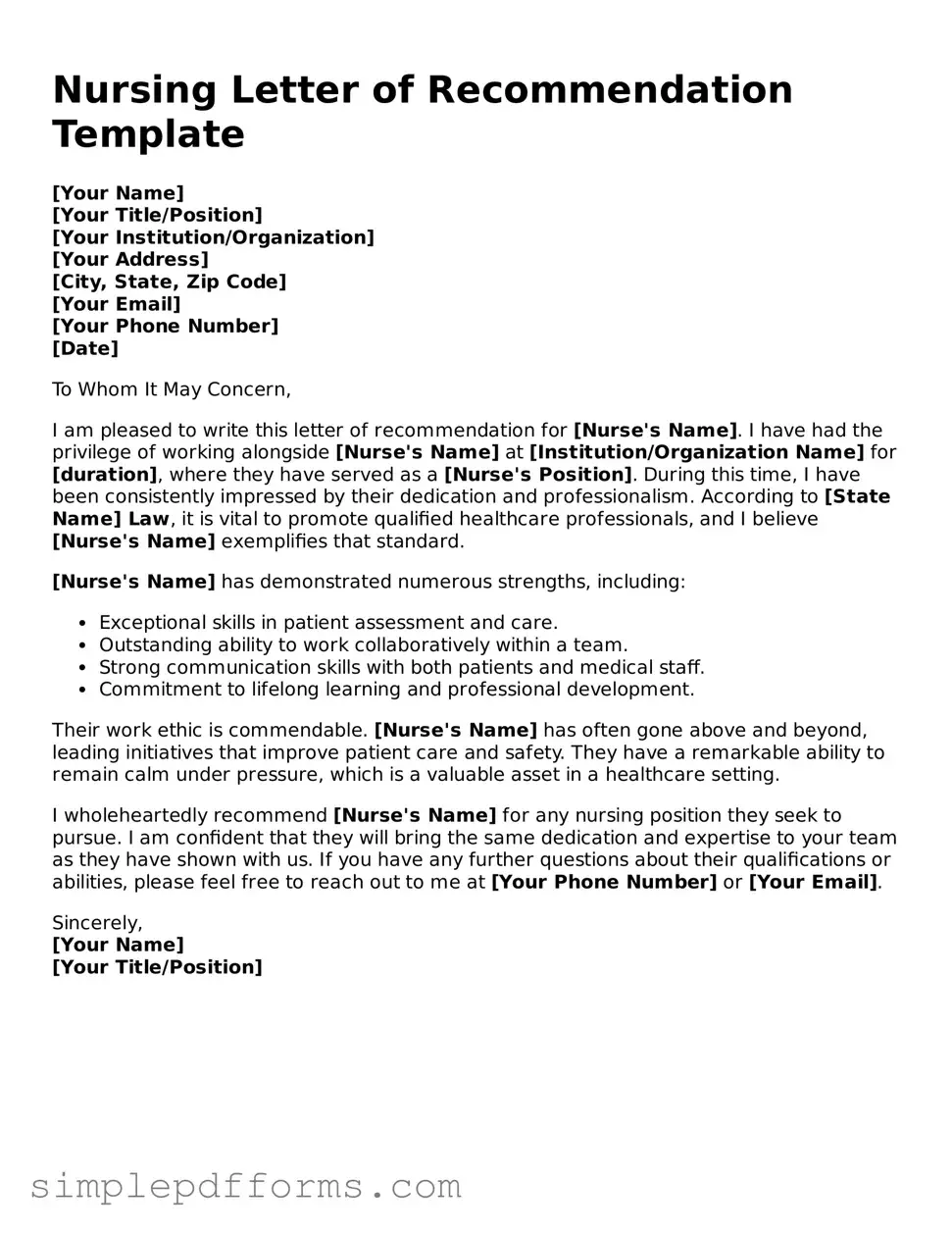Free Nursing Letter of Recommendation Form
The Nursing Letter of Recommendation form is a vital document that supports a nursing candidate's application by providing insights into their skills, character, and experience. This form is often completed by a mentor, employer, or educator who can attest to the applicant's qualifications. A strong recommendation can significantly enhance the candidate's chances of securing a position in a competitive field.
Open Nursing Letter of Recommendation Editor Now

Free Nursing Letter of Recommendation Form
Open Nursing Letter of Recommendation Editor Now

Open Nursing Letter of Recommendation Editor Now
or
Get Nursing Letter of Recommendation PDF Form
Your form is waiting for completion
Complete Nursing Letter of Recommendation online in minutes with ease.